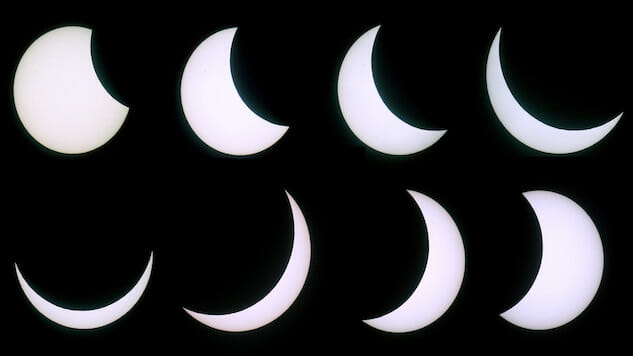In Erin Kelly’s Thriller He Said/She Said, an Eclipse Hides a Violent Crime
Photo courtesy Getty Images/Peter Macdonald
Erin Kelly walks a fine line in He Said/She Said, not unlike the corona which briefly rings the moon during a solar eclipse. Like that uncanny phenomenon, a perfectly coiled thriller is brought about via a spooky sense of balance. Throw in too many layers of conspiracy and coincidence, and the book takes on an amateur tone. Write too few moments of shock and surprise, and the narrative falls flat..
Kelly only falls into the former problem—which is the better one to have!—for one brief moment at the novel’s end. Other than that, this work’s biggest misstep is the title, whose prosaicness hides a worthy thriller.
Set in the insular community of people who travel great distances to observe eclipses, He Said/She Said possesses characters bound together by violence at a solar eclipse festival. Kit has chased eclipses for his entire life; Laura is there to see her first one. As both wander the Cornwall countryside looking for any break in the clouds blocking their view, they move away from the crowd until they stumble upon Beth—just as a man is getting off of her. For the next 16 years, Kit and Laura will become inextricably intertwined with Beth and the story of her attacker.
-

-

-

-

-

-

-

-

-

-

-

-

-

-

-

-

-

-

-

-

-

-

-

-

-

-

-

-

-

-

-

-

-

-

-

-

-

-

-

-









































